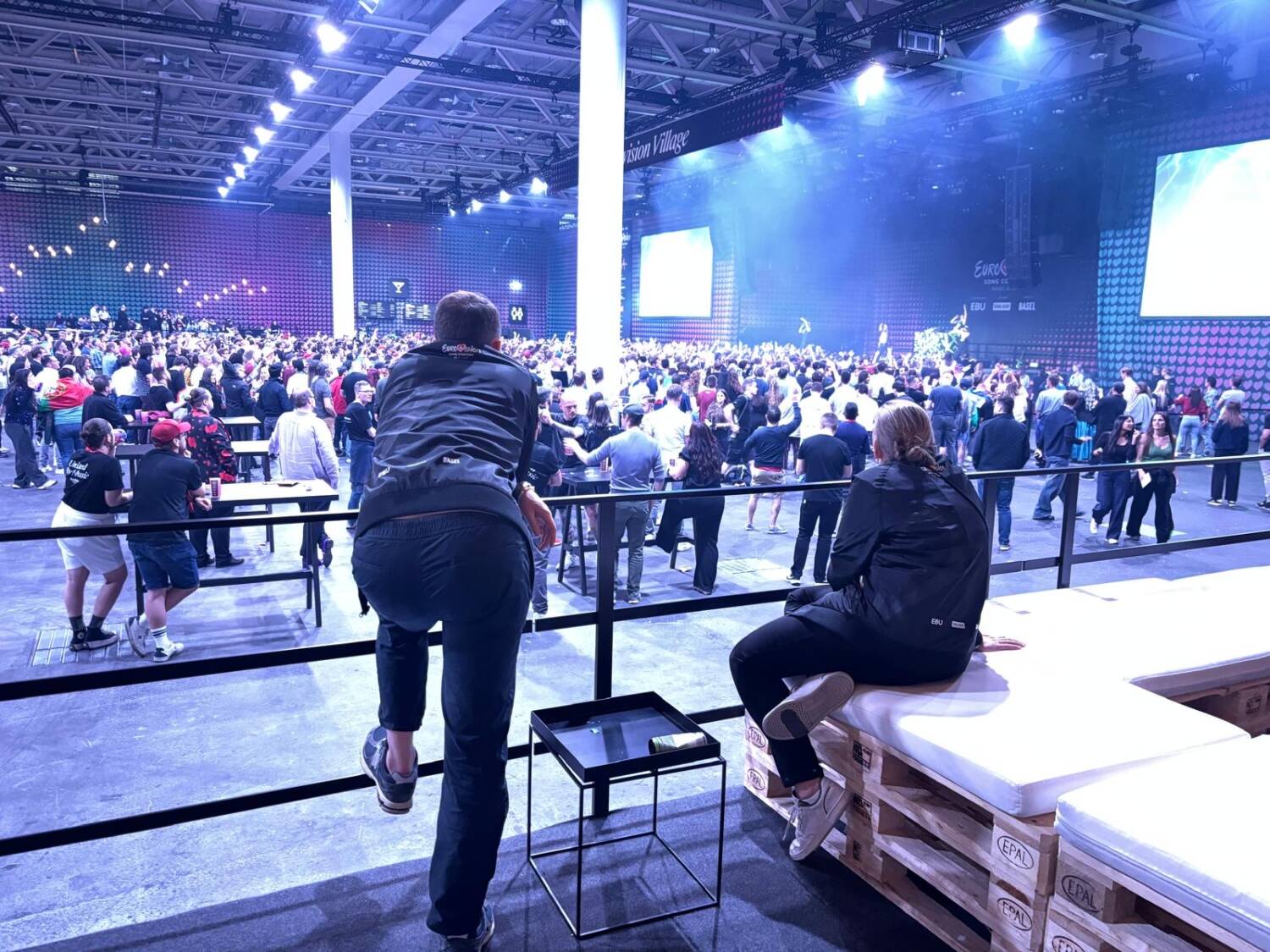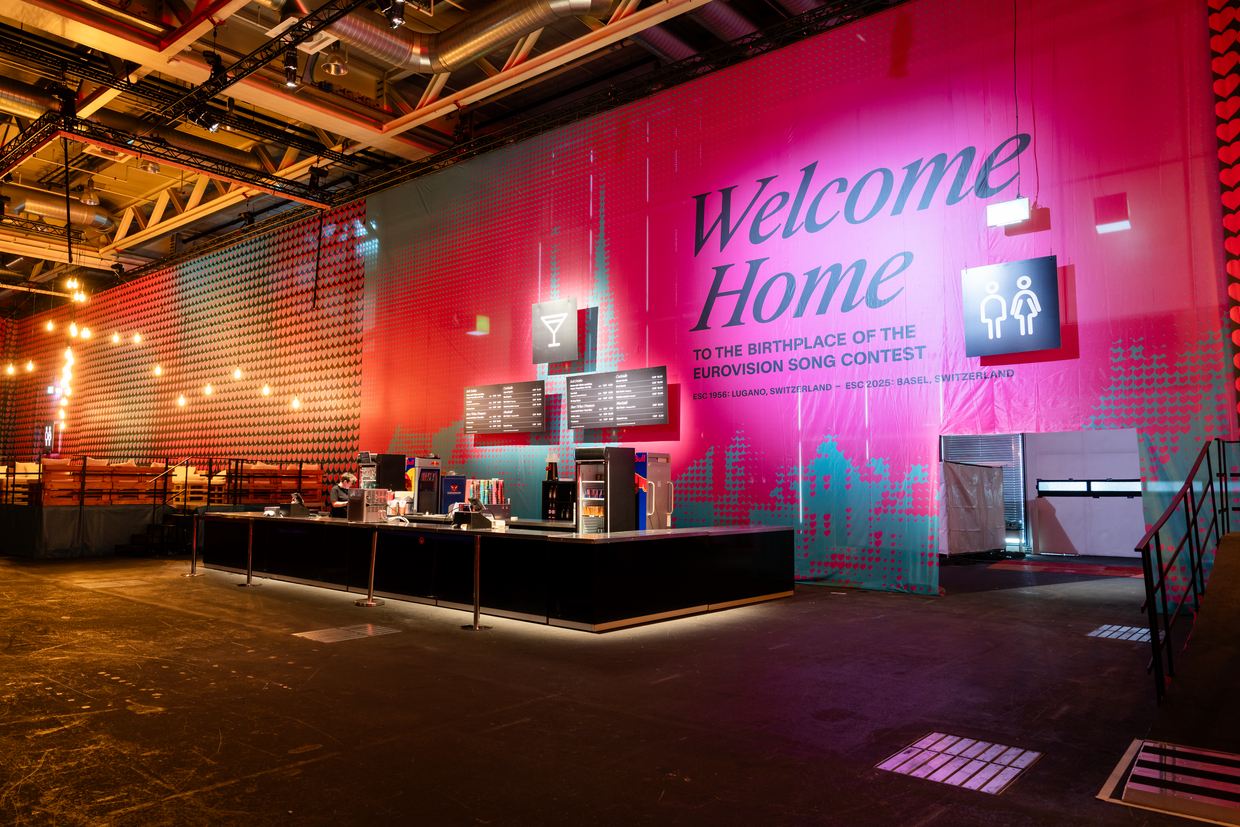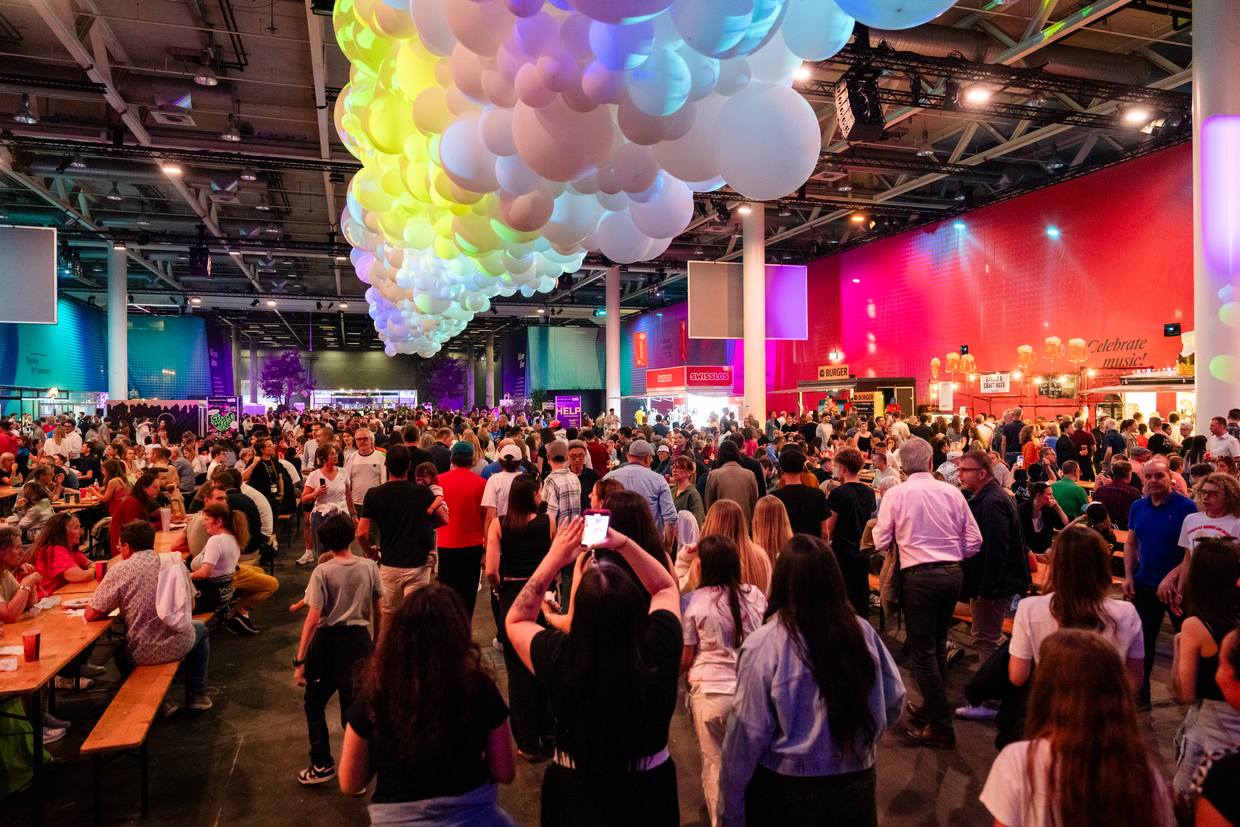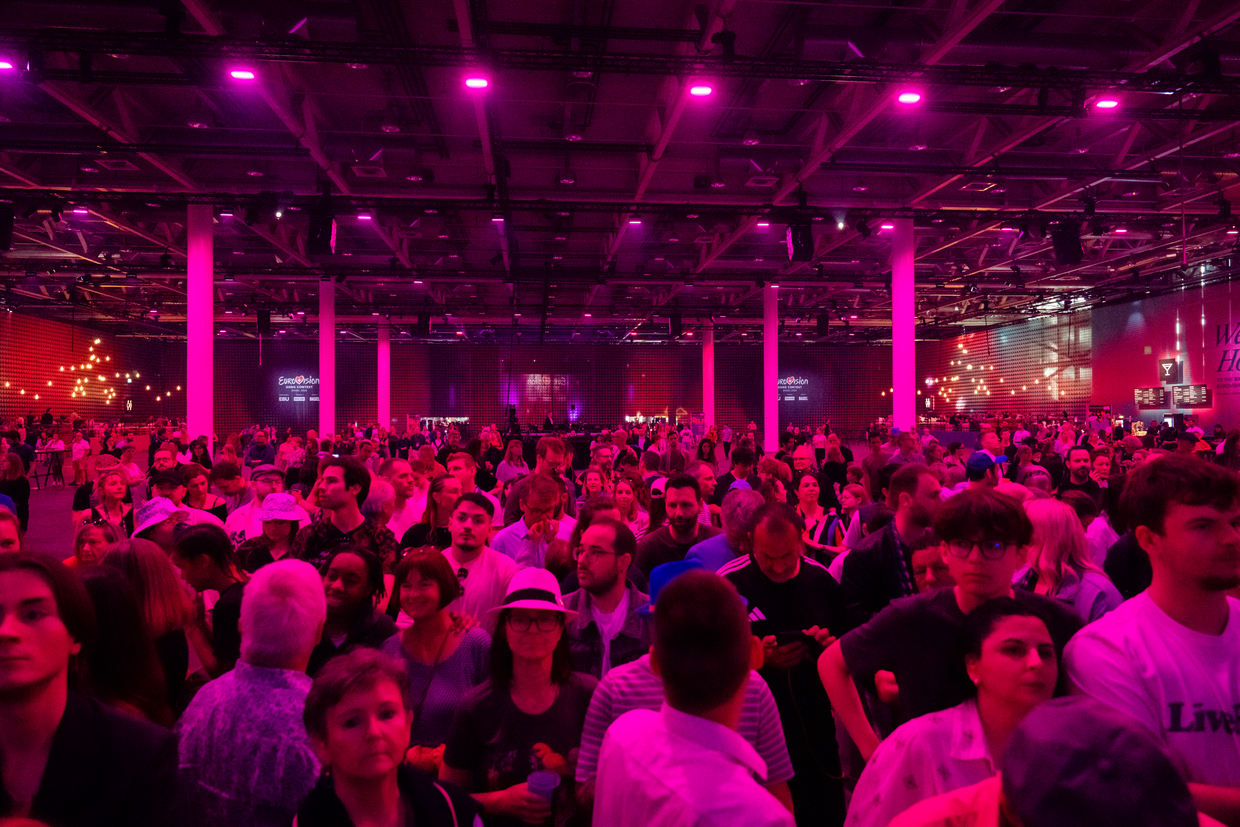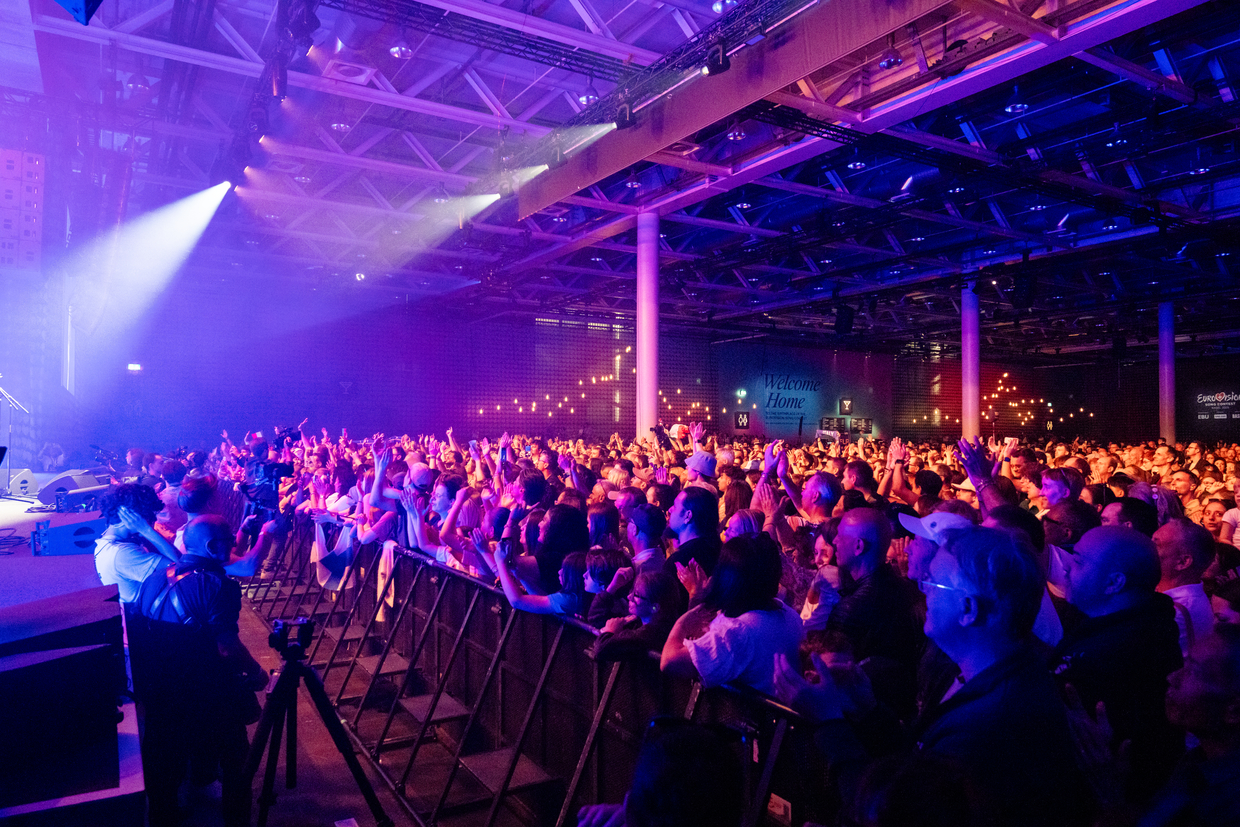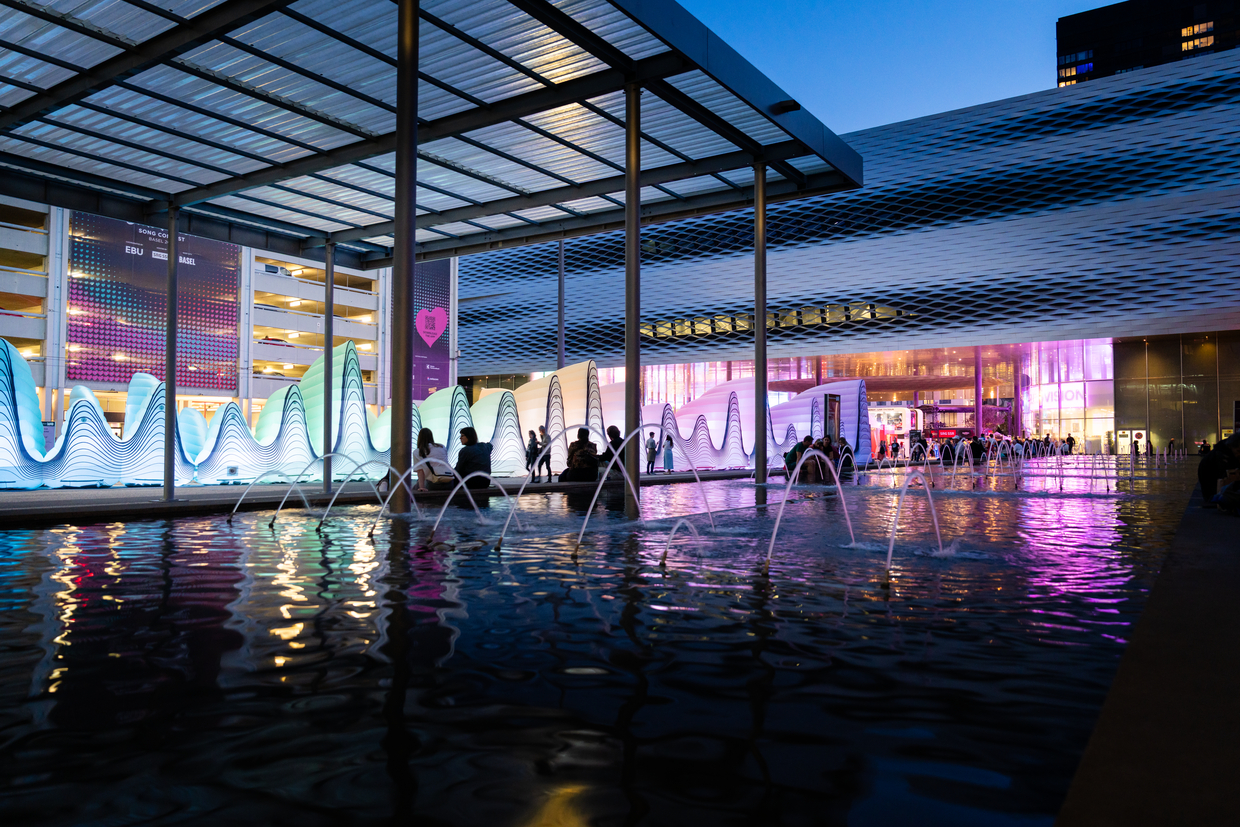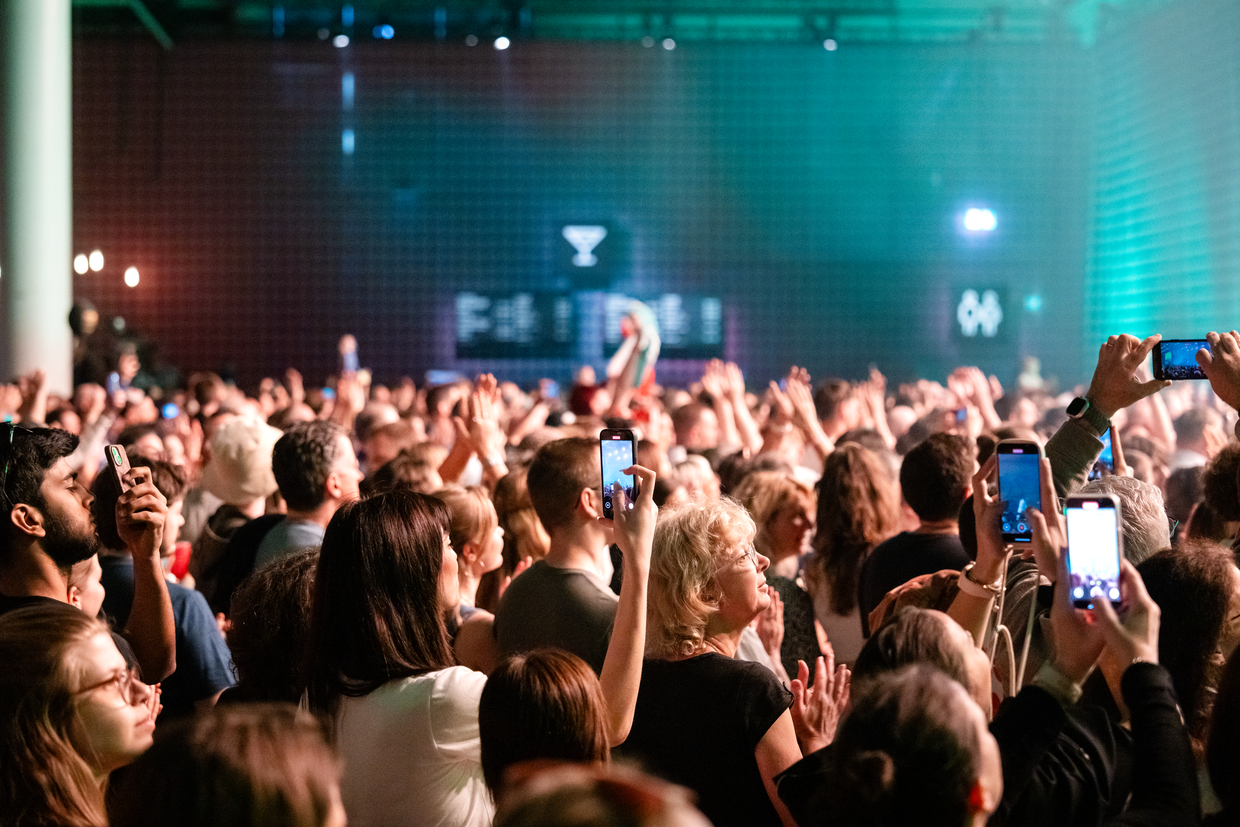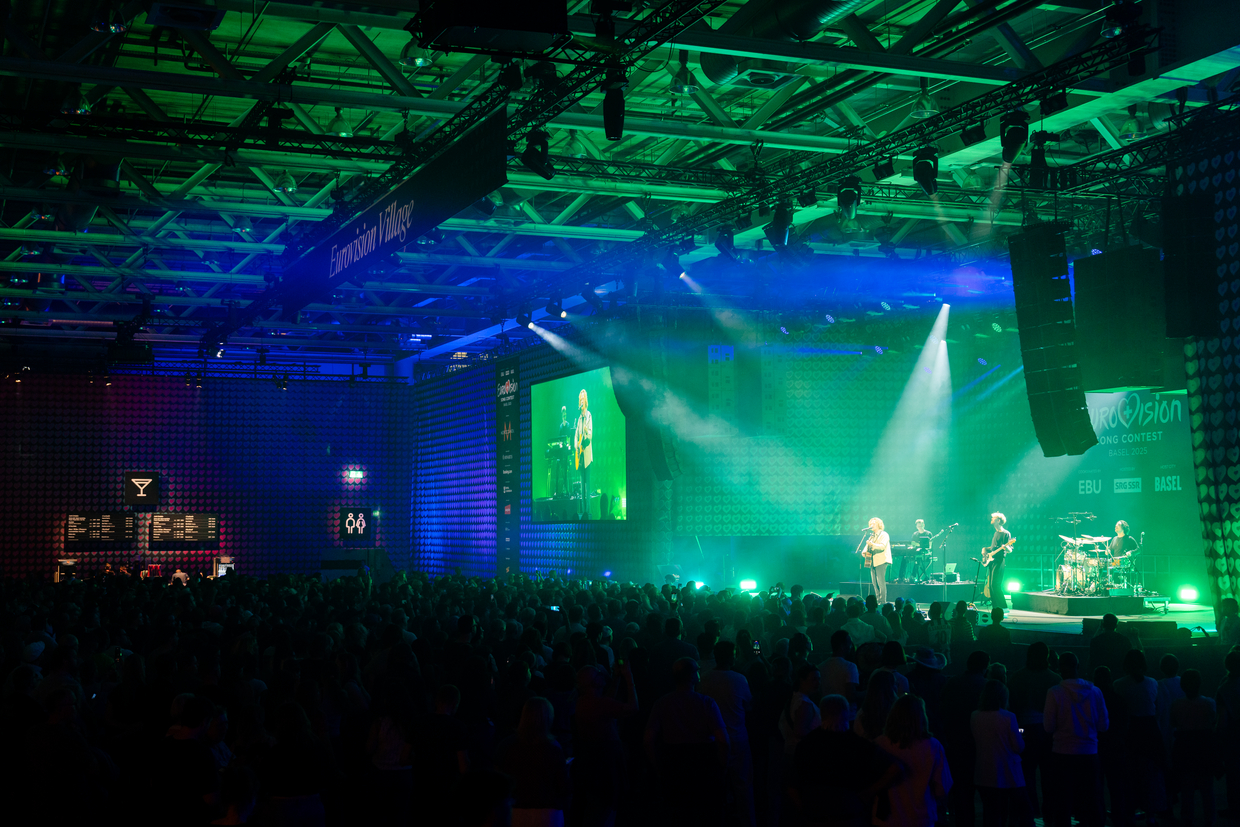With the Eurovision Song Contest 2025 in Basel, not only did the city but also the MCH Group step into the international spotlight. In the midst of it all was Simone Weiss and her team, responsible for the design and implementation of the Eurovision Village in the halls, a central meeting point for fans, media, and partners. In this interview, she shares her experiences, challenges, and learnings from this uniquely dimensional and energetic project.
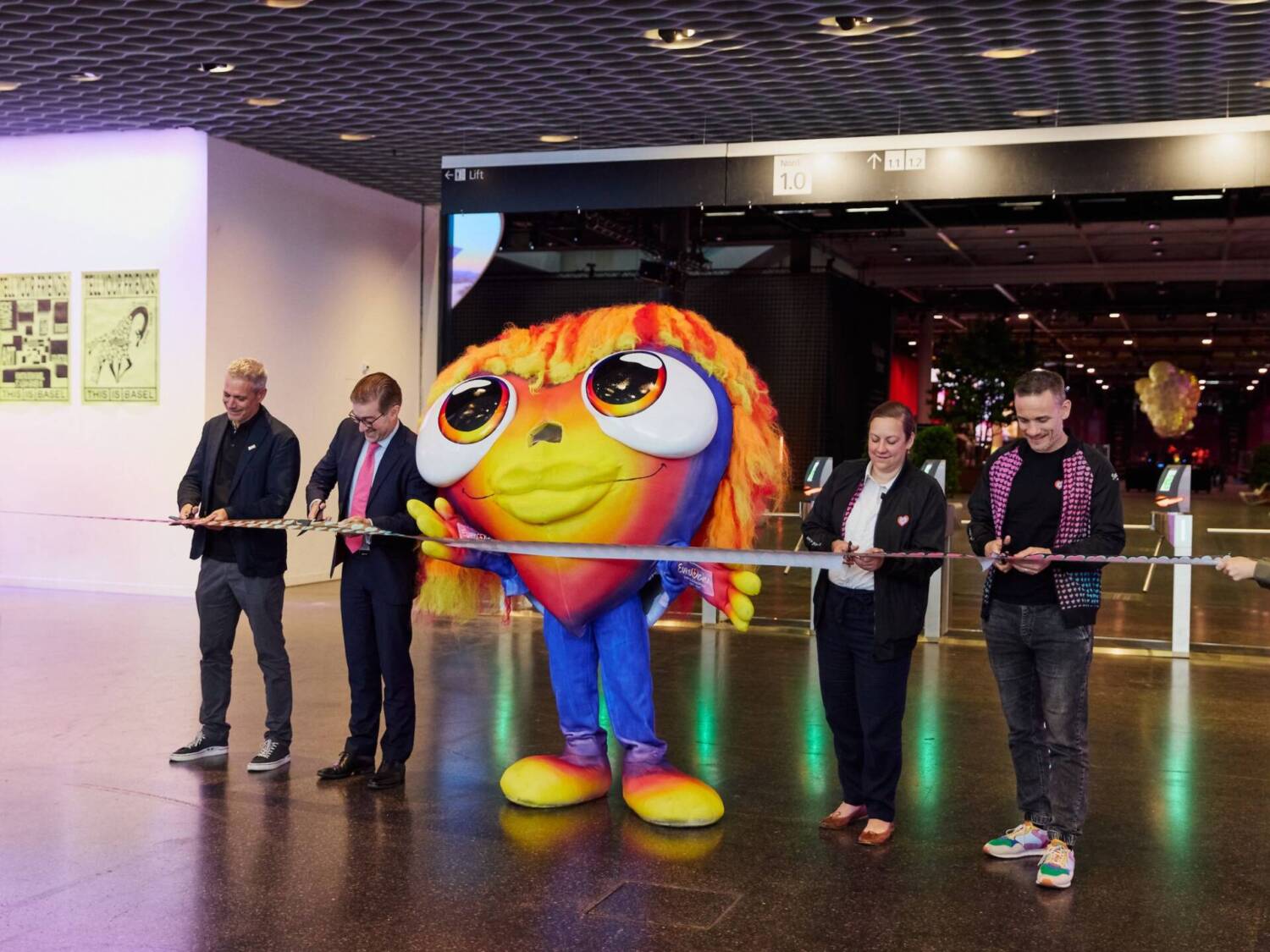
What were the challenging aspects of setting up the Eurovision Village in the halls, and how were these overcome?
The biggest challenge for me was setting up our own Eurovision Village in a very short time. We had to draw from past hosting experiences while considering cross-cutting themes such as security and sustainability. What ultimately carried us through this intense phase was the continuous, open exchange within the extended team, critically questioning existing concepts, and finding solutions together.
What specific technical or logistical learnings did you draw from the design and setup of the halls for Eurovision Village?
I take away two key learnings. Firstly, using large-scale prints proved effective, allowing us to visually adjust to the hall’s size while creating a cohesive ambiance. Secondly, we were pleasantly surprised by the acoustics. With the right tools, we significantly improved sound quality in the hall, more than originally anticipated. This allows us to implement further formats in the halls in the future and provide a broader range of offerings to the public.
How did the requirements for the halls differ for an internationally noted event like the Eurovision Song Contest compared to other projects you’ve managed before?
Several factors made this project unique: the extremely tight timeline, my new role as an organizer, the event’s immense complexity, and the multitude of cross-cutting themes. Together, these aspects made the project an extraordinary challenge.
Were there any last-minute adjustments or unexpected situations in the halls during the event that you had to react to, and if so, how did you resolve them?
The biggest unexpected situation was the massive influx of visitors on the final Saturday. Thanks to close collaboration with the police, we managed to handle this surge as well. Visitors were safely directed through the Rosentalanlage to the Eurovision Village entrance, a true team effort under pressure. It was received and implemented peacefully by the guests, which also made it easier for us.
What personal or professional lessons do you take away from the project?
This ESC journey was a unique and unforgettable experience for me! It’s incomparable to anything else. I was particularly impressed by the incredible energy that can arise when everyone pulls together towards a common goal. This sense of community was overwhelming and very inspiring.
If you were to implement Eurovision Village again, what would be clearer from the beginning, and what might you approach differently in hindsight?
The learnings for a second round would be immense. We could approach team formation more strategically from the outset, and our awareness of the expected challenges would be much more pronounced today. At the same time, I believe that the initial uncertainty is an important part of the ESC’s magic; it’s what makes the project so special and vibrant.

